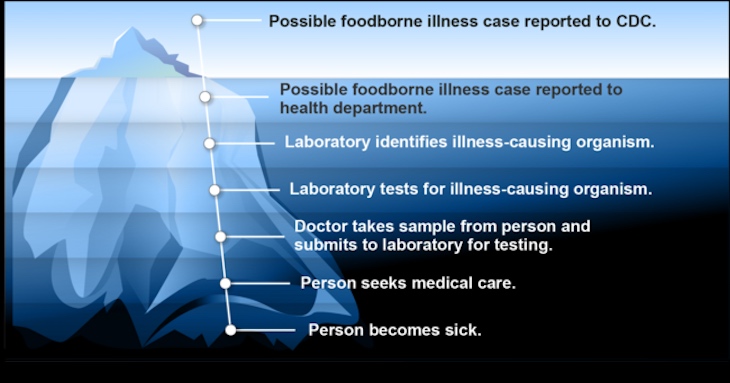The Government Accounting Office (GAO) is responsible for examining how taxpayer dollars are spent and provides Congress and federal agencies with objective, non-partisan, fact-based information. It is an independent, non-partisan agency that works for Congress. The latest GAO study of foodborne illness in the United States has found some issues and recommends a national food safety strategy.

GAO analysis of CDC information
The CDC states that only a small proportion of foodborne illnesses are diagnosed and reported to public health authorities every year. For Salmonella, only one case is reported for every 29 illnesses that actually occur.
The report finds that the safety and quality of the U.S. food supply is covered by at least 30 federal laws administered by 25 agencies. Some goals aimed at reducing foodborne illness have been developed, but most have not been met. For instance, the USDA’s goal was to reduce the portion of poultry samples with Salmonella by 4%, but the proportion of contaminated samples rose by 22%.
The CDC relies on public health authorities from states and localities to voluntarily report cases of foodborne illness. Some of these outbreaks may not be investigated because of resource limitations.
The CDC reports that there have been 9,000 foodborne illness outbreaks in the U.S. between 2001 and 2020, across all 50 states. These outbreaks cost Americans about $75 billion in 2023 dollars annually in medical care, lost productivity, and premature deaths.
The Healthy People 2030 Initiative also sets joint agency performance metrics to reduce outbreaks through a working group that includes the FDA, USDA, and CDC. But the working group has not reported much progress.
In 2017, the GAO called for the Executive Office of the President to develop and implement a national strategy for overseeing food safety. The GAO believes that this action could address matters for congressional consideration about a government wide performance plan. But as of January 2025, there were no plans to create a national strategy. according to officials from the Office of Management and Budget.




